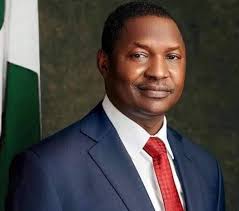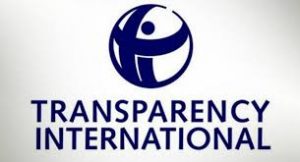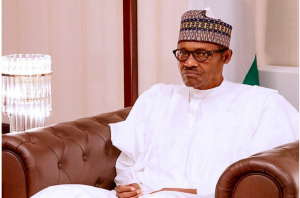Just a few hours after Transparency International released its 2019 corruption perception index which placed Nigeria at 146 out of the 180 countries, the federal government has rejected the ‘unflattering’ corruption rating by TI.
This has become a tradition for the Nigerian government to reject any international ratings especially from transparency international which does not place it in a very good light.
Speaking on the report, The Attorney-General of the Federation and Minister of Justice, Abubakar Malami (SAN), said there was no evidence to back the rating by TI.
“In terms of the fight against corruption, we have been doing more and we will continue to do more out of inherent conviction and desire on our part to fight against corruption devoid of any extraneous considerations relating to the rating by Transparency International”. Malami said in a statement on Thursday.

Nigeria’s Recurrent Poor Corruption ranking
The Corruption Perceptions Index (CPI) is an index published annually by Transparency International since 1995 which ranks countries by their “perceived” levels of public sector corruption, as determined by expert assessments and opinion surveys. The CPI generally defines corruption as “the misuse of public power for private benefit”.

The Transparency International ranking simply means Nigeria is the 146 least corrupt nation out of 175 countries. This means Nigeria is still perceived as a country deep in corruption without clear policies to address the menace.
The group has been rating Nigeria’s transparency index since 1996 till its recent 2019 evaluation. Corruption Rank in Nigeria averaged 122.50 from 1996 reaching an all-time high of 152 in 2005 and a record low of 52 in 1997.
Nigeria slipped on Transparency International’s Corruption Perception Index 2019, scoring 26 percent. Nigeria scored 27 out of 100 in TI’s 2018 report but dropped by a point in 2019, making Africa’s most populous country take the 146th position.

In its 2018 report, Nigeria ranked 144 out of 180 countries and 148 out of 180 countries in the 2017 CPI respectively. The Civil Society Legislative Advocacy Centre (CISLAC) which is Transparency International Chapter in Nigeria had said in January 2018 that when Nigeria moves up the CTI scale, it does not mean the country is becoming less corrupt, it only means that other countries have scored worse while Nigeria stagnated.
Nigeria’s habit of Rejecting Foreign ratings
Unless it paints the administration in a good light, the federal government often castigates any ranking or report from international organizations especially Transparency International.
President Muhammadu Buhari dismissed the 2017 findings of Transparency International, suggesting that the group’s findings were politically-motivated to deface his administration.

The president said his administration has done creditably well in stamping out corruption in the country, especially through its much-publicized anti-corruption drive that had seen several politicians associated with the last administration of Goodluck Jonathan arrested.
Transparency International, however, rejected allegations of bias in compiling its report, saying it follows strict aggregation standards which had earned it tremendous credibility amongst countries across the world in its 25 years.
In 2017, Federal Government has described as “inaccurate’’ a survey by Reporters Without Borders, which rated Nigeria’s press freedom poorly saying it sustained decline since 2015.
On several occasions the Nigerian government especially the military have rejected Amnesty International reports that accuse it of human rights abuses or those that give contradicting information about its fight against militancy.
In December 2018, Nigeria’s army called for the closure of Amnesty International’s operations in the country following a report by the human rights group which revealed that at least 3,641 people had died in clashes between farmers and herders in Nigeria since 2016.

All this is in sharp contrast to the government’s reaction to the latest Ease of Doing Business report which had shown Nigeria moved up 15 places in its 2019 to 131st position out of 190 countries.
With this trend, it does not come as a surprise that the federal government has rejected the 2019 CTI report.
However, with Transparency International repeatedly identifying public procurement fraud as constituting a large chunk of corruption in public service and with recent revelations by The Independent Corrupt Practices and Other Related Offences Commission (ICPC) on how lawmakers siphon public funds, it is imperative that federal government work on fixing these identified problems rather than fight findings that do not flatter the administration.
